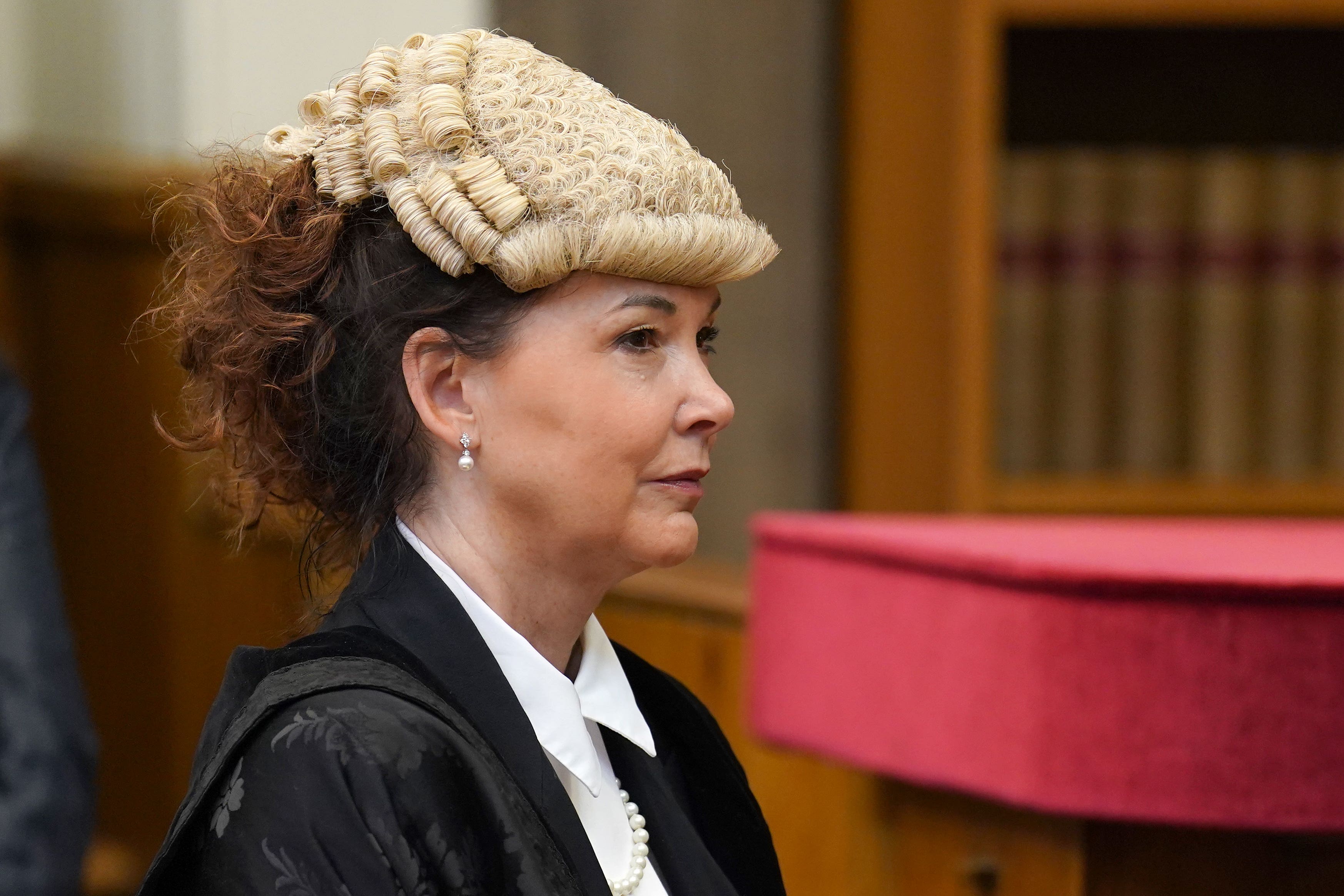Corroboration rule change ‘transformative’ for rape cases – Lord Advocate
Dorothy Bain said the change in how corroboration is viewed could ‘improve access to justice for more victims’.

Your support helps us to tell the story
From reproductive rights to climate change to Big Tech, The Independent is on the ground when the story is developing. Whether it's investigating the financials of Elon Musk's pro-Trump PAC or producing our latest documentary, 'The A Word', which shines a light on the American women fighting for reproductive rights, we know how important it is to parse out the facts from the messaging.
At such a critical moment in US history, we need reporters on the ground. Your donation allows us to keep sending journalists to speak to both sides of the story.
The Independent is trusted by Americans across the entire political spectrum. And unlike many other quality news outlets, we choose not to lock Americans out of our reporting and analysis with paywalls. We believe quality journalism should be available to everyone, paid for by those who can afford it.
Your support makes all the difference.Scotland’s most senior law officer has hailed a change in corroboration requirements as being potentially transformative, particularly in rape cases.
Lord Advocate Dorothy Bain KC raised the point of law with the Court of Appeal following a case in which the accused was acquitted of rape.
In the case, heard at the High Court in Aberdeen in 2022, a judge directed the jury that the complainer’s boyfriend’s evidence of her distress could only corroborate a lack of consent, but not that rape had occurred.
Now, seven judges have issued a written opinion that evidence from a witness testifying to the distress of an alleged victim, in a statement made by her shortly after the event, is “capable of corroborating direct evidence from a complainer that she has been raped”.
Today’s decision has the potential to transform the way we prosecute all offences
Ms Bain said: “Today’s decision has the potential to transform the way we prosecute all offences, in particular sexual offences, and will improve access to justice for more victims.
“This ruling clarifies just what is needed to constitute a sufficiency of evidence.
“The Crown Office and Procurator Fiscal Service (Copfs) will now consider the terms of the ruling carefully. Prosecutors will take time to consider what it means for our work and plan for the future resourcing of Copfs.”
She added: “Since my appointment, I have sought to do all within my power to deliver justice for women and girls, who are disproportionately impacted by sexual offences.
“The potential to introduce transformative change, such as through this Lord Advocate’s reference, was one motivation for me in taking this office.”
Scots law requires two sources of reliable and credible evidence to corroborate that an offence was committed.
The court’s opinion said that, by the early last century, courts and legal textbooks began to treat corroboration as a requirement to have two witnesses to speak to individual facts in a case, rather than the case as a whole.
The Scottish Courts and Tribunal Service summary of the opinion states: “This, in the view of the court, caused corroboration to become overly technical and complex, particularly in sexual offence cases, whereby lack of consent and the act of intercourse were treated as distinct, essential facts.”
The courts opinion, delivered by the Lord Justice General, Lord Carloway, said: “An overly technical approach makes it difficult for the judge adequately to direct the jury; increases the risk of confusion in the jury; and raises the prospect of a miscarriage of justice.”
Copfs said in a statement: “The court’s decision today has confirmed that it is only the case against the accused that requires to be proved by corroborated evidence, and not the separate elements individually.
“This decision is a change to the law of corroboration for sexual offences and other offences.”